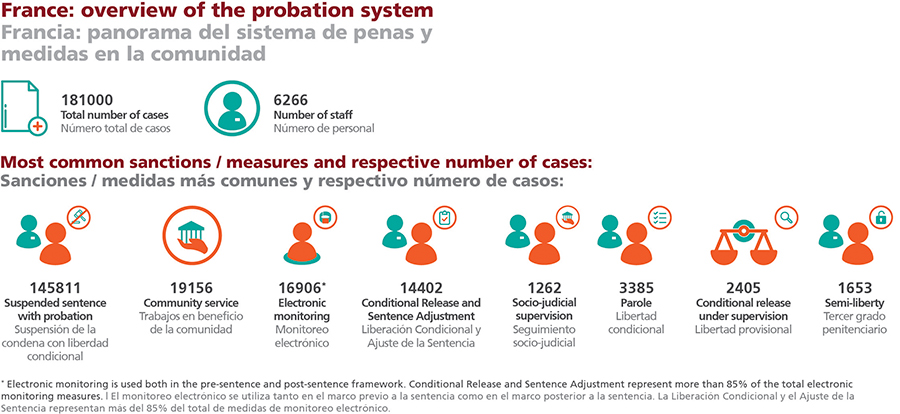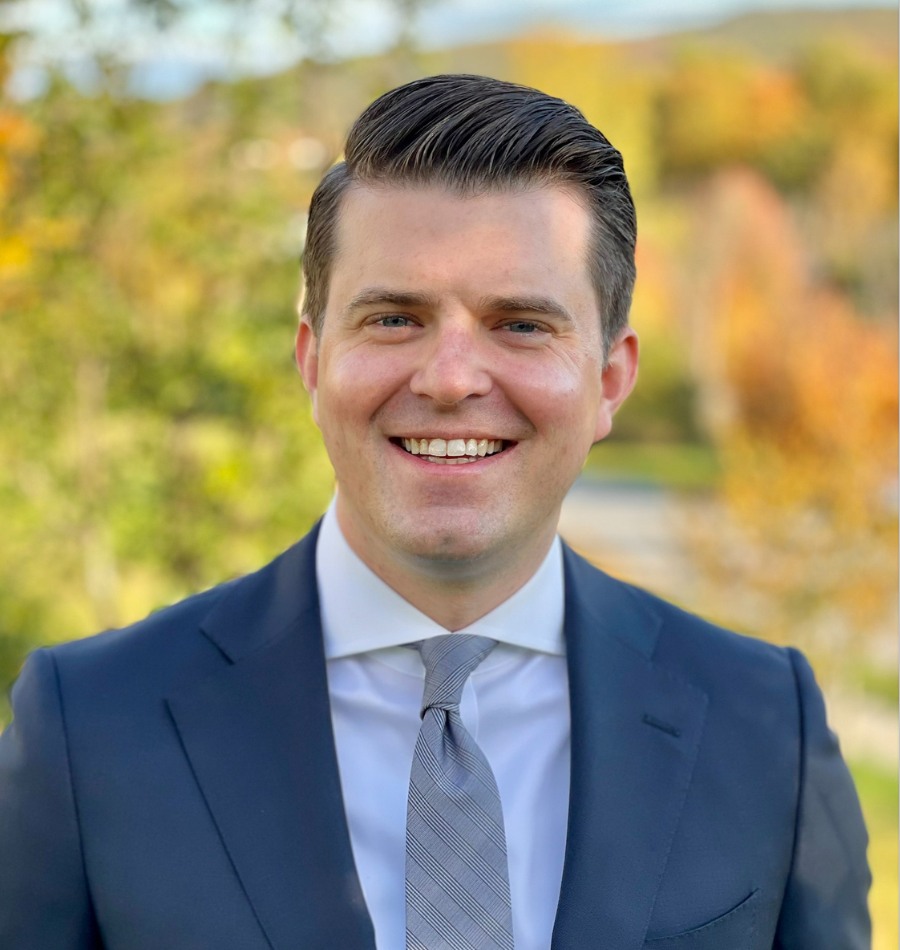Interview
Laurent Ridel
Director of the Prison Administration, France
With over 40 years of experience in the French penal system, in this interview, Laurent Ridel addresses critical topics such as prison overcrowding and describes comprehensive strategies for offender rehabilitation and reducing recidivism. He also discusses the challenging task of managing radicalised extremist inmates and efforts to tackle organised crime within prisons.
What are the main challenges currently facing the French prison service?
LR: Our main issue is prison overcrowding, characterised by a high prison population and a rising incarceration rate, distinguishing France from the rest of Europe. The large number of people on probation fails to alleviate the problem. Prison overcrowding results in undignified living conditions, with multiple prisoners sharing cramped cells and some forced to sleep on a mattress on the floor. Frequent condemnation from French and European courts underscores the gravity of this situation.
On top of the physical challenges, overcrowding has a negative impact on the mental health of inmates. This is also caused by the difficulties of the psychiatric system, including an insufficient number of psychiatrists and a growing population of mentally ill inmates. Overcrowding also impairs the function of entire prison facilities designed for a much lower number of inmates, leading to shortages in visiting rooms, job opportunities, vocational training, and medical care.
This crisis affects the well-being of prison staff, resulting in deteriorated working conditions, heightened tension, violence, and increased sick leave rates, especially among surveillance staff. To address this prison overcrowding, the government plans to provide places for 15,000 new beds in 50 modern prisons. Additionally, we are optimising existing prison spaces. However, addressing overcrowding requires a comprehensive approach beyond real estate solutions.
As part of our approach, we aim to emulate Germany’s success in reducing the prison population through alternative methods. Our evidence-based probation system, integrated into the prison administration services, now offers a range of non-custodial sentences, including community service and electronic monitoring. Currently, we manage over 181,000 individuals under community supervision compared to the 75,000 people in prison.
Convincing judges to favour probation over prison sentences is difficult, but my staff and I met the judges in many courts, to increase their knowledge of the possibilities offered by probation. Public awareness of the costs of prison is also a key factor, as prisons are expensive and community-based sentences can effectively prevent reoffending.
In order to cultivate evidence-based policymaking in France, we have asked a dedicated team to evaluate the effectiveness of different types of sentences for different kinds of offences and individual profiles. This approach will help us to determine which types of sentences are most effective. As someone with extensive experience in the prison system (40 years as a prison governor), I believe that while imprisonment is sometimes necessary, it is not always the most effective solution. We must ensure that imprisonment makes sense! We are committed to participating in the debate on prison policies, even in a challenging political climate, to move away from simplistic punitive solutions towards more effective approaches to complex societal problems.

Given prison overcrowding challenges, what are your top priorities for offender rehabilitation and recidivism reduction?
LR: One of the biggest challenges facing prison programming is the shortage of staff, particularly prison officers. Recruitment has proven to be quite challenging. We have made concerted attempts to change society’s perception of the institution, making it more positive and attractive. Our initial focus was on instilling a sense of pride among the prison staff.
To achieve this, we implemented symbolic measures, such as having prison officers participate in the July 14th parade, our national holiday, alongside other public security forces. Additionally, we have recently introduced two national days to honour the prison administration. The first day is dedicated to familiarising the public with prison jobs and missions, aiming to raise awareness of the comprehensive role the prison system plays in society. The second is a memorial day, commemorating our staff fallen in the line of duty. We also work on communication to change the public perception of prison. We truly believe that prison jobs can be attractive to young people because they are among the most meaningful and human-centred civil service careers.
Another key aspect of our efforts involves making prison roles more appealing. We have restructured the status of directors, elevating them to the rank of senior officials, similar to magistrates. We have also enhanced the status of, the entire probation staff, officers and directors. This has resulted in a significant increase in status and allowances, aligning these roles more closely with those of police officers, firefighters, or customs officers. Our focus is on strengthening communication and actively attracting individuals to join the prison service.
Regarding correctional programs, we are dedicated to ensuring that the time spent in prison is productive. Therefore, the first step is to establish an assessment system on arrival. The individual is assessed by a multidisciplinary team and, depending on the outcome; we define a plan for serving the sentence. We focus on complementary aspects encompassing social behaviour, emotional management, criminological factors, adherence to social and interpersonal relationship rules, and more. There is a significant social component to our work. We recognise that the populations we work with come from some of the disadvantaged groups in society.
As a result, we have developed comprehensive programmes in partnership with public services, including education, vocational training, and healthcare. Moreover, we evaluate all these programmes to assess their effectiveness. We adapt our programming to address specific types of delinquency. Similarly, unfortunately France has to deal with a high number of violent radical Islamic terrorists. In response, we have developed programmes to evaluate and address violent radicalisation while maintaining our focus on both the criminal act and social integration. In all cases, our ultimate goal is to address the underlying causes of offending behaviour.

In relation to the issue of violent and extremist terrorist offenders in prison, how does the French Prison Administration identify and assess the risk of radicalisation among inmates? What strategies and methods do you employ to evaluate the extent and nature of radicalisation?
LR: Since 2014-2015 we’ve had to deal with a totally unprecedented wave of violent Islamist terrorist prisoners which has posed unique challenges. The sudden arrival of hundreds of proselytising inmates with the intent of radicalising others required an immediate response.
To address this, a step-by-step strategy was developed, focusing on assessing and addressing the root causes of radicalisation. Extensive staff training was carried out, and monthly meetings held to identify potentially radicalised detainees. Those identified were placed in radicalisation assessment areas, where comprehensive evaluations took place, involving psychologists, psychiatrists, social workers, prison officials, and specialists in Islam. According to assessed risk levels, detainees could either be returned to the mainstream prison population with monitoring, be placed in solitary confinement for reassessment, or enter radicalisation management units with individualised disengagement programmes.
Our research indicates that 80% of these detainees had no previous prison experience, indicating that radicalisation can occur in various environments. Moreover, there was significant heterogeneity within this population, necessitating tailored programmes, especially considering the increasing prevalence of psychiatric conditions. There are also problems linked to a lack of integration into society, which means that people can develop a sense of unease, sometimes hatred, and a desire for revenge.
Although the total number of Islamist prisoners has been reduced to 380, one hundred of these are women.
In particular, there has been a wave of repatriations of female terrorists from detention camps in the Iraqi-Syrian region so adjustments have been made to accommodate the specific needs of women returning from these war zones, who have committed or been subjected to difficult and abominable acts. Additionally, with around 250 terrorists now released and under probation services’ monitoring, individualised supervision plans have been developed in collaboration with an NGO.
In France, we are fortunate to have a unique agency, the National Prison Intelligence Service, dedicated to combating terrorism and radicalisation within the prison system. I also oversee this service, which is a very important part of our strategy for identifying and dealing with the terrorist threat.
JT: Organised crime is a growing concern in Europe, including within penitentiary institutions.
How does the French Prison Administration prevent and counter the influence and activities of organised crime groups in its facilities and what measures have been taken to reduce corruption, violence, extortion, smuggling, and trafficking within the prison system?
LR: We employ a multifaceted approach to combating organised crime in our prisons. Firstly, the National Prison Intelligence Service has a strong partnership with agencies like the Central Office for Combating Drug Trafficking and various law enforcement organisations dedicated to tackling organised crime. This collaboration allows us to use advanced intelligence techniques, including wiretaps and interceptions, to target organised crime networks effectively.
This also ensures a seamless flow of critical intelligence related to prison security and organised crime activities.
Secondly, we have created a dedicated sub-directorate within the prison administration responsible for maintaining close oversight of the most dangerous inmates, identified as DPS (particularly high-risk prisoners). Out of our 75,000 inmates, we have around 250 in this category. We pay meticulous attention to these inmates, ensuring they do not become too settled in their surroundings or are able to corrupt staff members. As a result, we frequently transfer these prisoners to different facilities to mitigate risks, all while respecting their rights. For extremely dangerous prisoners, we have solitary confinement units similar to those used for the most high-risk terrorists. These units involve specially trained teams who remove these individuals from the general prison population, ensuring heightened security and control.
Additionally, we’ve implemented an educational policy focused on ethical rules and the prevention of corruption, especially for our younger and less experienced officers. We continuously monitor and identify any inappropriate behaviour, and we do not hesitate to take legal and disciplinary actions against staff involved in corruption. These cases are swiftly forwarded to the public prosecutor’s office for criminal prosecution.
Finally, we are actively adopting new technologies to enhance prison perimeter security. We’ve witnessed an increasing use of drones for illegal deliveries and the issue of mobile phones within prisons. To combat this, we’ve equipped around fifty establishments with anti-drone devices, and we are expanding this initiative. In our maximum security facilities, we’ve even installed landline telephones in each cell, allowing prisoners to communicate with their family and friends while preventing illicit phone use. In highly sensitive establishments, we use jamming systems to disrupt mobile phone signals.
Laurent Ridel
Director of the Prison Administration, France
Laurent Ridel has been the Director of the French Penitentiary Administration since 2021. Holding a Master’s Degree in Public Law, he has held several positions as director of penitentiary establishments and interregional director of penitentiary services. Laurent Ridel has received several honours throughout his career for his dedication to his work, including being an Officer in the National Order of the Legion of Honor, a Knight of the National Order of Merit, and a Medal of Honour of the Penitentiary Administration.


